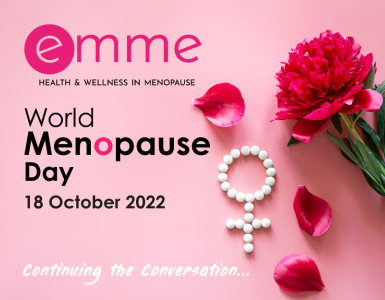If you’re experiencing the perimenopause or the menopause, then you’ve more than likely experienced symptoms such as changes in your mood and feeling so hot at night you could well be a human hot water bottle!
But the menopause is more than mood swings and hot flushes. There are some symptoms of this time of life that can be baffling, and you might not even put them down to the drop in oestrogen that is responsible for the array of symptoms associated with the menopause.
Three such symptoms are high blood pressure, heart palpitations and dark skin spots. So let’s take a look at each one in turn.
High blood pressure
The female sex hormone oestrogen plays an important and well understood role in our reproductive health. But it also helps to protect us in other ways, such as keeping our bones strong and our skin youthful.
Oestrogen also has a role to play in our heart health, by looking after our blood vessels, allowing good blood flow to and from the heart and helping to prevent fatty plaque build up and high cholesterol. So as our oestrogen drops, it can have a negative impact on our heart health.
A drop in oestrogen can also mean that our blood vessels become narrower and stiffer. This means that we could be susceptible to high blood pressure as we enter our middle years.
Heart palpitations
A racing heart can be a scary experience as it can feel like things are out of our control. If you’re experiencing heart palpitations, you may be surprised to learn that it could be down to your hormones.
Just like the effect on our blood pressure, a drop in oestrogen can lead to heart palpitations as our levels of this hormone fluctuate. Not only that, the perimenopause and menopause often coincide with stressful life events such as children leaving home as they become adults, relationship problems and the concern of elderly parents.
Stress can also lead to heart palpitations, made worse by fluctuating hormones.
Making sure you’re getting enough omega 3 from oily fish, walnuts, flaxseeds or supplements can help to look after your heart health and could help you manage both high blood pressure and heart palpitations.
If either are worrying you, it’s best to see your doctor to discuss your concerns.
Dark skin spots
As we go through the menopause, it can be normal to experience darker patches of skin forming on the face, particularly across the forehead and cheeks. This is a condition called melasma, that again is down to a drop in oestrogen leading to an increase in skin pigmentation.
Exposure to the sun can make melasma appear worse, so it’s best to take steps to avoid exposing your skin to the sun. The sun is at its strongest between 11am and 3pm during the spring and summer months. During these times either wear a high factor sun cream or good quality sunglasses and a broad rimmed hat.
You’re not along during this time of your life, keep your eye out here for more help and advice on the menopause!
















